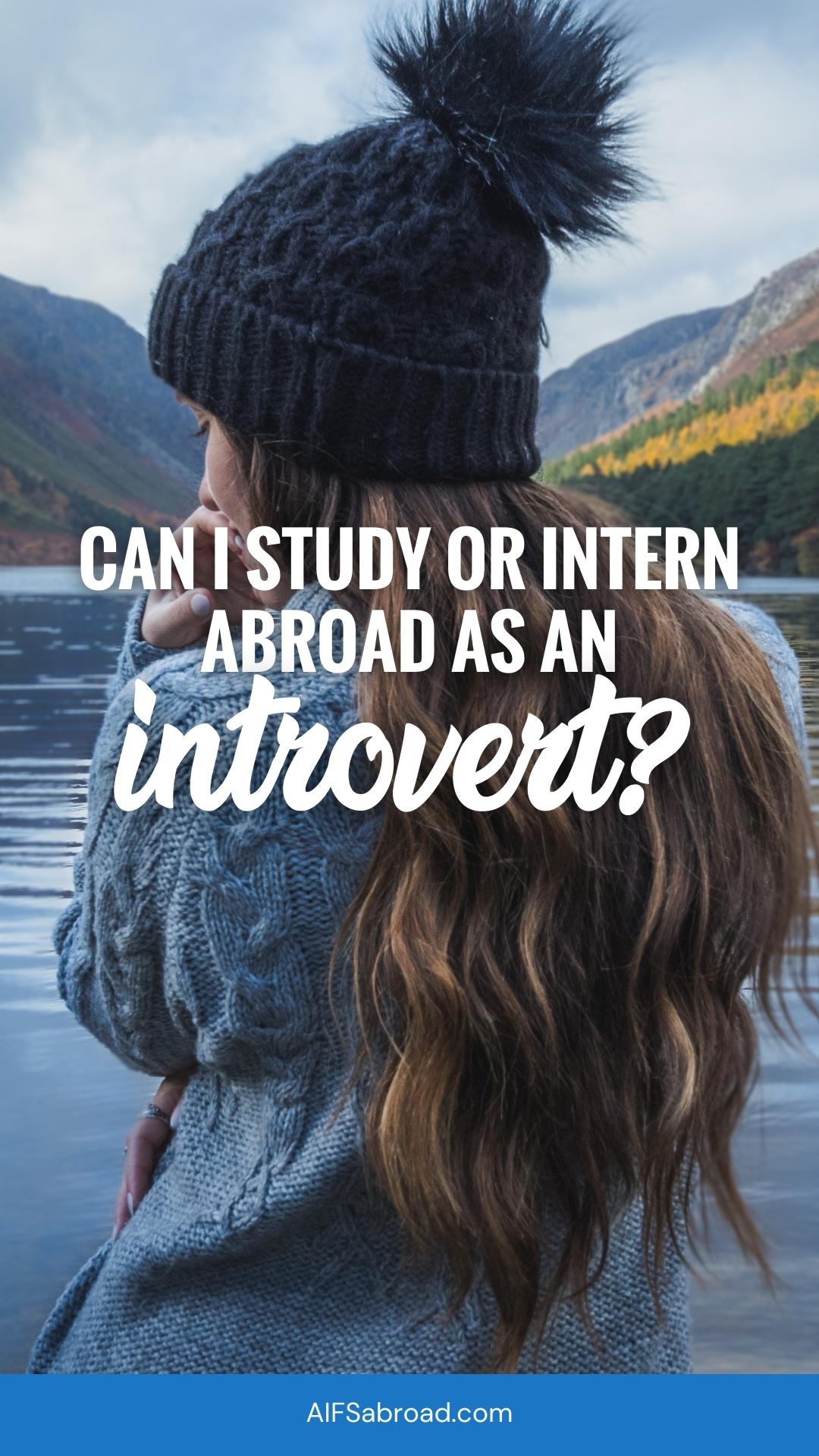Here at AIFS Abroad, we believe all students should enjoy a life-changing global education opportunity, and are determined to find the right program for everyone based on their own unique needs. While many want to go abroad to meet new people (which we encourage!), introverts may be nervous to do so because of social overload, or because they think a study or intern abroad experience is only suited for extroverts.
We’re here to tell you that introverts can study or intern abroad — and will love it.
First, what is an introvert?
According to Susan Cain, author of Quiet: The Power of Introverts in a World That Can’t Stop Talking, “introverts have a preference for a quiet, more minimally stimulating environment.” She says introverts listen more than they talk. While extroverts gain energy from social situations, introverts can find them draining and often need time to recharge when experiencing them.
Should introverts study or intern abroad?
Short answer: yes! Long answer: yes, but do your research — make sure you choose a program and location that caters the experience to what you need. Consider if you want a small-to-medium city, a rural area or campus feel, or if you’re okay with being in a more urban environment. Giant metropolitan hubs like London or Seoul offer extroverts endless stimulation and opportunities to meet people but can potentially be overwhelming for introverts. There’s no right or wrong answer — plenty of introverts pick big cities! It’s all about finding the right fit for you.
Where should I study or intern abroad as an introvert?
For introverts looking for a study abroad or internship program location that’s on the smaller side — charming, quaint cities where you can easily find a little nook to read or study — here are a few suggestions:
- Edinburgh, Scotland
- Florence, Italy
- Galway, Ireland
- Grenoble, France
- Limerick, Ireland
- Maynooth, Ireland
- Salamanca, Spain
- Salzburg, Austria
- San José, Costa Rica
- Stellenbosch, South Africa
- Wellington, New Zealand
Tips for Introverts Abroad
Say “yes” sometimes, especially in the beginning
At the start of your study abroad or internship program, there will be so much anticipation and a ton happening. While the thought of this might make you want to hide in your room, the first few activities you do with others can really set the tone for your group dynamic and help you make new friends. Say yes to these first few new experiences — you never know who you might meet or what you might discover!
“Some of my most memorable experiences came from last-minute adventures that I initially doubted. There are still activities I wish I would have partaken in that my introverted nature kept me from doing. Trust me when I say: looking back, you will regret more the things you did not do as opposed to those that you took a chance on.” — Kaitlyn E., AIFS Abroad in Salamanca, Spain alum
Befriend an extrovert
Do you struggle with motivating yourself to leave your room? Pick an extrovert to be your friend — they’ll happily do it for you. As you get comfortable with each other, they’ll understand when you want or need to go out and explore, and when you may need to hunker down.
Find your spot
This could be a café, a place in the park, a cozy bookstore — just somewhere that is all yours, where you can sneak away to when you need to recharge.
“Bring a book or a journal and enjoy the quiet. My spot was the café at my University’s library. It was quiet, had good food, and I didn’t look out of place sitting alone reading or writing in my journal.” — Johanna F., AIFS Abroad in Limerick, Ireland alum
Explore the city
A new city can be daunting to introverts. So many people! But as you explore at your own pace, the city will inevitably feel smaller, and more like home. It can even be wonderful to venture out solo for some quality you-time!
Document your experiences
Introverts often process their experiences not with conversation, but within themselves. It might help to keep a journal, write a blog, or post to a private social media account to articulate your thoughts. Plus, after you return home, you can look back on all the things you did while studying or interning abroad — and feel proud that you did them!
When it comes to studying abroad or interning internationally, it’s okay to be shy. Introverts are welcome!
Don’t let extroverts have all the fun! Take advantage of the opportunity to explore the world and get out of your comfort zone without compromising who you are. AIFS Abroad has a wide variety of study abroad and international internship programs available to accommodate all sorts of personality and goals.

